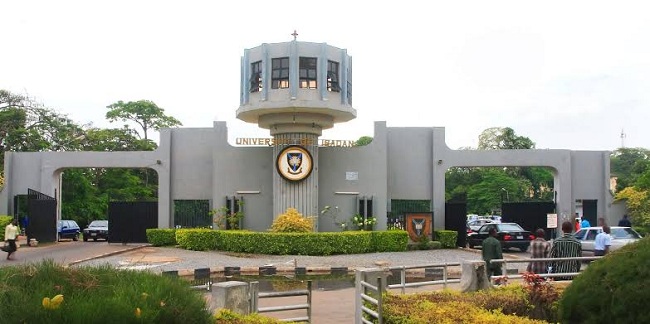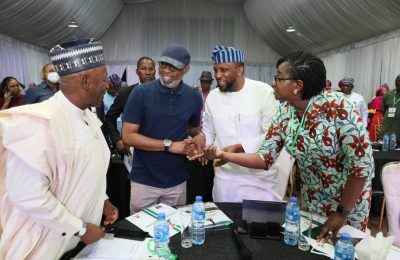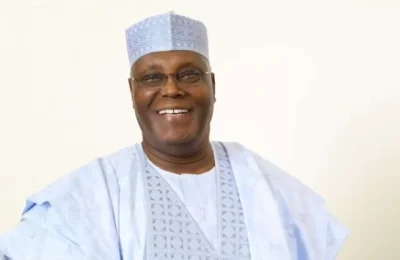

Eminent scholar of Literary Theory/Criticism and Text-Stylistics of the Faculty of Arts, University of Ibadan, Professor Nelson Fashina, says strikes within the Nigerian university system affect the performance of students.
The Academic Staff Union of Universities (ASUU) had embarked on a strike in 2022 that lasted for eight months.
The strike was to protest the Federal Government’s delay in implementing the agreement reached with the union on revitalising public tertiary institutions, review of salaries and allowances, among other issues.

Speaking on Thursday at the 523rd inaugural lecture delivered at the University of Ibadan, on the topic, ‘Text, Grammatology and the Automation of Theories in (African) Literary Discourse’, Fashina said issues that result in such strikes need to be addressed to discourage mediocrity.
He said: “Mr. Vice-Chancellor, Sir, the debilitating effects of last year’s episodic structure in the dramatic act of ASUU-FG total strike, though justifiable, havebeen tellable in the massive failure and poor performance of students in the somewhat rushed examinations that were conducted in Nigerian universities last semester.
“No sooner than ASUU called off the 8-month tenure of the strike did the Nigerian universities rush to complete the prescribed curriculum for each course in speed time. The universities forced students into a contraption of semester examinations for which they were not properly prepared.

“This action by Nigerian universities betrays the fact that it takes time for the cognitive aspect of social and academic learning to get introjected, internalised and sublimated for reproductive regurgitation and creative application by the students. Such a university learning situation cannot produce excellence.

“It is in the prospect of reality that incessant strikes may only produce first-class graduates with ‘aegrotat’ knowledge. They are disadvantaged from the required systematic and consistent academic tutorship and mentorship that may provoke and produce the innate ability and genius in them.
“Therefore, I aver that when Federal Government allows industrial negotiation to degenerate into automatisation of strike in our universities through the breakdown of healthy grammar of relationship, negotiation, agreement and implementation between ASUU and the FG, it causes a dangerous deviation from the norm of academic excellence in Nigeria, with the historical affiliation to high standard British styled education system.”
Earlier, the renowned academic had advocated for a more inclusive approach and appreciation of African indigenous knowledge systems. According to him, “it is time our universities and research institutions began to explore a more advanced, and a more practiseddevotion to our indigenous knowledge production system. That is the most epistemic aspect of the results of my research, teaching and publications in the last 34 years of cumulative university lectureship.”
Professor Fashina’s inaugural lecture was the eleventh in the series of Inaugural Lectures from Nigeria’s premier Department of English, University of Ibadan. Paul Christopherson– “Bilingualism”- 17 Nov., 1948; Molly Mahood (1954)- “The Place of English Studies in African University”; MJC Echeruo (1976) – “Poets, Prophets and Professors”; Ayo Banjo (1981)- “Grammars and Grammarians”; Dan Izevbaye (1985) – “In His Own Image”; Isidore Okpewho (1990) – “The Portrait of an Artist as a Scholar”; Sam Asein (1995)- “Literature and the State: Thoughts on the Scholar-Critic as a Mediator”; Aderemi Raji-Oyelade (2013)- “Fluent Interventions: Webs of the Literary Discipline”; Omobewaji Ademola Dasylva (2017) – “Culture Matters: African Literary Traditions, Organic Ontologies and Epistemological Routes”; and Emmanuel Babatunde Omobowale (2018) – “Healing with the Pen: Literature and the Quest to HumaniseMedical Practice in Nigeria”.
While Professor Fashina’s citation was being read, it was stated that “One thing that defines and distinguishes the character of Prof. Fashina’s research and publications is the great length, the depth of analytical rigour, the high theoretical philosophy, and innovative application of literary principles and grammatical rules to both Literature and contemporary realities. Among the honours and distinctions in Prof. Fashina’s research and international academic rating include: He got honourable mention in the Vice-Chancellor’s convocation speech, in 2000 on account of the Summer Institute Fulbright awards of excellence he received in Louisville, KY, U.S.A. His scholarly research publication, entitled, “Post-Colonial Reading Strategies and the Problem of Cultural Meaning in African/Black Discourse” in Journal of Pan African Studies (USA, 2008) was listed 7th best position (critical essay) since English Criticism among the internationally assessed papers for “The Gold Standard in English Critical Discourse” carried out in USA and South Africa in 2010. Prof. Fashina’s research publication entitled, “Proverbs, Proverbials and Meaning: Towards a New Taxonomy of of Reading Patriarchy in Achebe’s Things Fall Apart” in JENDA: A Journal of Culture and African Women Studies. (Issue 11, 2007) received peer review panel’s honorable mention as a grand unique contribution to knowledge in the field of literary theory and criticism – for excellence of language and entirely novel analysis of Achebe’s theory of African literature and philosophy. The JENDA Journal issue 11, 2007 (U.S.A) in which Prof. Fashina’s research was the lead paper won an award as the “Best Scholarly Journal on the Web”.
The inaugural lecture was attended by both the university community and the public.









